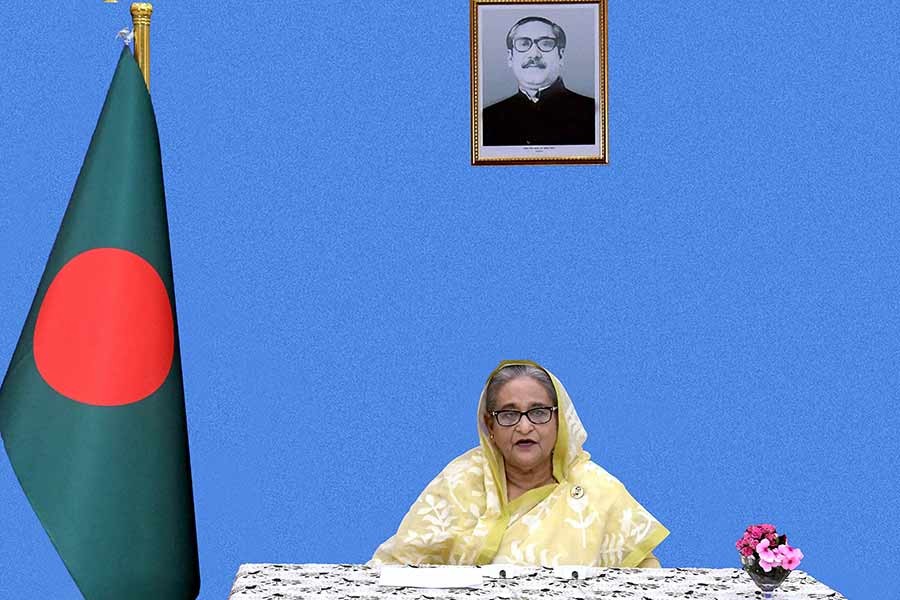Prime Minister Sheikh Hasina has urged Japan and other countries in the Organisation for Economic Co-operation and Development (OECD) to extend preferential facilities to at least until 2029 for Bangladesh's smooth graduation into a developing nation.
In a video statement at the 27th International Nikkei Conference on Future of Asia on Friday, the prime minister noted that Bangladesh is all set for graduation in 2026. The country will lose preferential facilities to the least developed countries at that time.
“We are already taking various measures for smooth graduation. We have urged through the UN mechanism to our friends and partners to consider extending preferential facilities to Bangladesh for an extended period beyond 2026,” Hasina said.
“We would deeply appreciate if Japan and other OECD countries do it at least till 2029 to help us to attain the overarching goals of sustainable development by 2030. Bangladesh is at different stages of negotiations on FTA with several countries, and open to negotiating FTA and CEPA with other countries, including Japan.”
Hasina also called for everyone’s contribution to help Bangladesh find an amicable settlement of the Rohingya refugee crisis as efforts to send them back to their homeland Myanmar have failed.
The prime minister said her government tried to make a balance between lives and livelihoods while tackling the impacts of the coronavirus pandemic.
“Indeed, we could successfully manage the challenges of the pandemic relatively well. Our efforts have been recognised in the Nikkei's COVID-19 Recovery Index for April 2022, where Bangladesh is ranked 5th out of 121 countries, and the best-performing country in South Asia in COVID management and recovery.”
She shared some ideas for the prosperity of Asia, emphasising friendship, understanding and cooperation with each other, and promotion of solidarity to address division.
Asian countries should explore how the soft power of ICT can be best used as a powerful tool to bridge the gaps between them, she said.
"They need to safeguard fairness, respect, justice, inclusiveness, and equality in their action," said Hasina.
She reminded others that Asia's future will depend on sustainable and balanced development, improving international order and establishing win-win international relations.
Asian countries have common development challenges and should face them together, she said.
“Bangladesh would always strive to work with all friends and partners to ensure a peaceful, sustainable world and more importantly a peaceful, sustainable and prosperous Asia for our future generations.”


